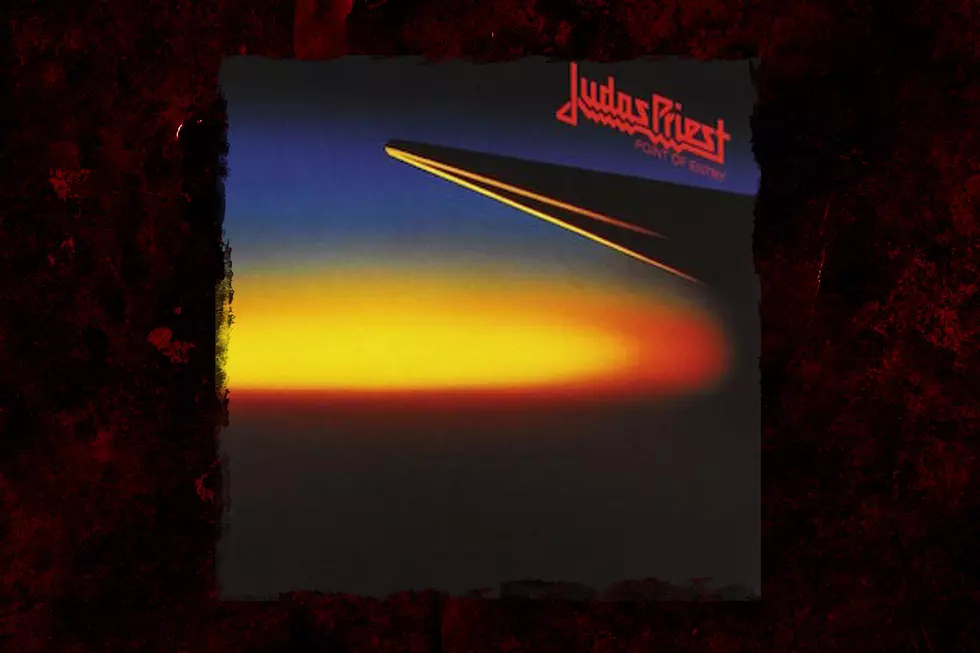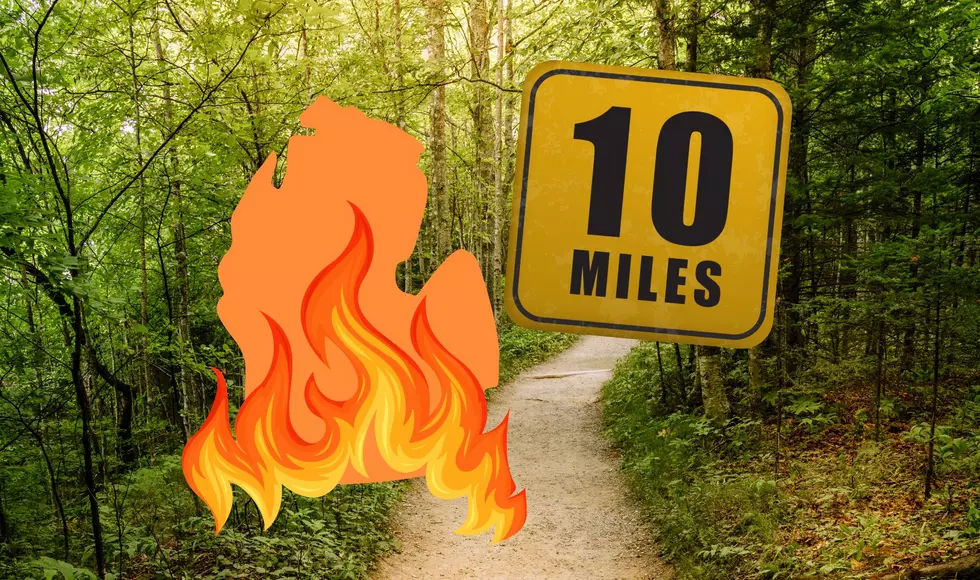
42 Years Ago: Judas Priest Release ‘Point of Entry’
By 1981, Judas Priest had notched seven albums into their studded leather belts, carrying the torch for heavy metal in the late ‘70s while genre godfathers Black Sabbath hit a bump in the road after six landmark records. Responsible for the spikes and leather imagery and twin guitar attack, Priest finally made their mainstream breakthrough at the turn of the decade with the punchy and to the point British Steel. Following the massive success, they flew to Ibiza Studios in Ibiza, Spain to record their follow-up, Point of Entry, which was released on Feb. 26, 1981.
Time has not treated the album so well, as it often gets overshadowed by its surrounding counterparts, the aforementioned British Steel in 1980 and the heavy metal cornerstone, Screaming for Vengeance in 1982. The songs demonstrated simple structures and simpler riffing, relying heavily on vocal melodies and hooks to lead the way. For the first time in their already well-established career, Judas Priest had the finances to record outside of the U.K. and the result was a product of their relaxed and luxurious environment.
Sticking with the radio-friendly themes of British Steel songs like “Breaking the Law” and “Livin’ After Midnight,” the British quintet set out to repeat their success, cutting three singles, “Heading Out to the Highway” which closely mirrored the anthemic style of “Livin’ After Midnight,” “Don’t Go” and the fist-raising “Hot Rockin’.”
Judas Priest, "Heading Out to the Highway" Music Video
With each prior record, Priest had entered the studio with material already prepared. Point of Entry marks the first album the band wrote spontaneously in the studio, which bolstered their conscious effort to track with the intent of presenting a more “live” feel, utilizing the talents of producer Tom Allom for the second consecutive record. Of course, there could be no better representation than a live feel in the studio than the 1979 barn-burner Unleashed in the East. The record famously contains a blistering live performance, but the original vocal recordings from the show were ruined and Rob Halford had to sing over the music live in the studio.
Upon its release, two different album covers graced the front of Point of Entry. The United States and Japan received the artwork (pictured) depicting a long, open road ahead that narrowed as it approached the horizon, glowing with the last rays of the setting sun and the album’s title above it. The white stripe dividing the road was constructed using computer printer paper and the top right corner shows the newly unveiled 3D version of the Judas Priest logo, which would be used through the release of 1986’s Turbo. The rest of the world received the original album cover (seen at the top of the page) depicting the lengthy edge of a cliff and the warm red, orange and yellow hues against the oncoming night shades as the sun dips below the horizon. The two dimensional logo was left in tact as it had been displayed since 1978’s Stained Class.
Judas Priest embarked on the North American leg of the World Wide Blitz tour in Columbus, Ohio on May 4, 1981, bringing Iron Maiden in tow as the latter band promoted the release of their frenetic Killers.
Though not released as one of the three singles, “Solar Angels” was featured as the show opener on the tour and the fan-favorite “Desert Plains” was a can't miss. Speaking about the latter in 2011, guitarist K.K. Downing said on his official website (via Blabbermouth), "’Desert Plains,’ to me, is just one of those songs that you can get into instantly because of the tempo and where the accents are in the riff. Additionally, and particularly in the States, the lyrical content making reference to the desert has that extra appeal for the fans in places like Arizona and New Mexico.”
Judas Priest, "Solar Angels
Priest toured heavily in support of Point of Entry, including two European legs of the tour in addition to their lengthy North American run featuring fellow Englishmen Saxon on the first leg and Accept as support on the second.
Point of Entry was certified gold in the U.S. by the RIAA and reached No. 39 on the Billboard 200. Its successor, Screaming for Vengeance, proved to be an even bigger breakthrough than British Steel, reaching No. 17 on the Billboard 200 and sold in excess of 5 million copies worldwide.



